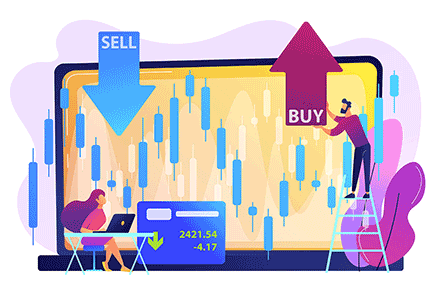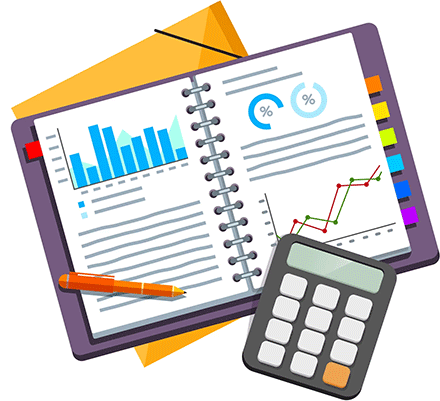The foreign exchange market, the world's most liquid financial market, trades currencies worth trillions of dollars every day. Given the sheer volume and importance of this market, it's evident that proper oversight is crucial to maintain trust, transparency, and protection for participants. This oversight is provided by Forex Regulators, essential institutions that aim to ensure the integrity and transparency of Forex markets across the globe.
Forex regulators play a pivotal role in the financial ecosystem. They establish the framework within which Forex brokers and dealers operate, ensuring that they adhere to best practices, maintain financial solvency, and offer protection to traders and investors. By setting guidelines and strict regulations, these regulators prevent fraud, money laundering, and other illicit activities. This helps in fostering trust, which is essential for both individual and institutional traders when participating in the market. Each country or major economic region typically has its primary regulatory body overseeing the Forex market and its participants. For instance, in the United States, the Commodity Futures Trading Commission (CFTC) and the National Futures Association (NFA) jointly oversee the Forex market, ensuring that brokers and other participants adhere to the strict standards set for customer protection and financial integrity. Similarly, in the United Kingdom, the Financial Conduct Authority (FCA) plays this role, known for its stringent guidelines and rigorous regulatory environment.
In the vast and interconnected world of Forex, brokers often cater to clients from various parts of the globe. This international aspect makes it even more crucial for there to be a standard set of regulations that brokers should ideally adhere to. However, it's worth noting that regulatory standards vary from one jurisdiction to another. For instance, while regulatory bodies in countries like the UK, US, and Australia are recognized for their stringent standards, there are regions with comparatively lax regulations. Therefore, traders often prefer brokers regulated by well-known and strict regulatory authorities, as this offers them a greater sense of security.
It's not just about protection from potential fraud. Forex regulators also ensure market integrity by implementing rules against practices like market manipulation. They ensure that brokers maintain segregated accounts to separate clients' funds from operational funds, which provides an additional layer of safety for traders. Moreover, these regulators require brokers to maintain a minimum level of operating capital, which ensures that they remain solvent and can meet their financial obligations to clients.
Another primary role of Forex regulators is dispute resolution. In case a trader or investor has a grievance against a broker, the regulatory authority provides a platform to address and resolve such issues. This conflict resolution mechanism ensures that traders have a means to seek redressal without having to engage in lengthy and expensive legal battles. Here's a list of some of the major Forex regulators from various countries.
United States
- Commodity Futures Trading Commission (CFTC): Regulates commodity futures and option markets.
- National Futures Association (NFA): Self-regulatory organization providing oversight in the derivatives industry.
United Kingdom
- Financial Conduct Authority (FCA): Supervises financial firms ensuring that markets operate effectively and consumers get a fair deal.
Australia
- Australian Securities and Investments Commission (ASIC): Enforces financial services laws and regulates Australian companies.
Canada
- Investment Industry Regulatory Organization of Canada (IIROC): Sets regulatory and investment industry standards.
European Union
- European Securities and Markets Authority (ESMA): Safeguards the stability of the European Union's financial system.
Japan
- Financial Services Agency (FSA): Oversees banking, securities, and exchange sectors.
Switzerland
- Swiss Financial Market Supervisory Authority (FINMA): Supervises banks, insurance companies, and other financial intermediaries.
Germany
- Federal Financial Supervisory Authority (BaFin): Ensures the functionality and stability of Germany's financial system.
France
- Autorité des Marchés Financiers (AMF): Regulates financial markets and protects investors.
Singapore
- Monetary Authority of Singapore (MAS): Acts as the central bank and integrated financial regulator.
Hong Kong
- Securities and Futures Commission (SFC): Ensures orderly securities and futures market operations.
South Africa
- Financial Sector Conduct Authority (FSCA): Regulates non-banking financial institutions and services.
Cyprus
- Cyprus Securities and Exchange Commission (CySEC): Supervises investment services and activities.
Malta
- Malta Financial Services Authority (MFSA): Regulates all financial services in Malta.
UAE (Dubai)
- Dubai Financial Services Authority (DFSA): Regulates financial services within the Dubai International Financial Centre (DIFC).
New Zealand
- Financial Markets Authority (FMA): Regulates financial services ensuring a fair, efficient, and transparent marketplace.
Russia
- Central Bank of the Russian Federation: The main regulatory body for all financial markets in Russia.
China
- China Securities Regulatory Commission (CSRC): Regulates securities and futures markets.
India
- Securities and Exchange Board of India (SEBI): Regulates and supervises the securities market.
Malaysia
- Securities Commission Malaysia: Oversees and regulates the capital market.
Brazil
- Comissão de Valores Mobiliários (CVM): Supervises and regulates the securities market.
Spain
- Comisión Nacional del Mercado de Valores (CNMV): Monitors Spanish stock markets and activities of its participants.
Italy
- Commissione Nazionale per le Società e la Borsa (CONSOB): Regulates the Italian financial markets.
Netherlands
- Dutch Authority for the Financial Markets (AFM): Supervises the financial markets' operation.
Belgium
- Financial Services and Markets Authority (FSMA): Oversees financial markets and businesses.
Denmark
- Danish Financial Supervisory Authority (FSA): Monitors financial and insurance company operations.
Sweden
- Swedish Financial Supervisory Authority (FI): Regulates financial markets.
Norway
- Financial Supervisory Authority of Norway: Oversees banks, insurers, and markets.
Mexico
- Comisión Nacional Bancaria y de Valores (CNBV): Supervises and regulates financial entities.
Thailand
- Securities and Exchange Commission, Thailand: Oversees and supervises the securities and exchange sector.
Forex Regulators are cornerstones in the global currency trading landscape. Their presence ensures that the Forex market remains transparent, reliable, and safe for all participants. As the world of finance continues to evolve with technological advancements, these regulators will play an even more significant role in adapting and molding the market's future. For traders, understanding the role and importance of these regulatory bodies is not just about choosing a broker wisely; it's about understanding the very fabric of the market they're engaging with.
Related Materials
Forex trading, an intricate dance of buying and selling currency pairs such as EUR/USD, GBP/USD, and USD/JPY, operates continuously five days a week. Often called foreign exchange trading, the core objective is to profit from shifts in currency pair values.
The forex market has witnessed a rise in the popularity of Percentage Allocation Management Module (PAMM) services, as both retail traders and institutional investors seek out ways to diversify their portfolios and earn passive income. As 2023 unfolds, it's pivotal to identify which brokers are at the forefront of offering top-notch PAMM services..
Copy trading, a revolutionary method in the trading world, has emerged as a boon for both seasoned traders and beginners. It's an automation process that allows traders to mirror the moves of more experienced counterparts.
If the concept of hedging in the world of Forex has left you intrigued, search no further. This comprehensive article will unravel the intricacies of Forex hedging, furnish you with a practical example of a Forex hedging strategy, and delve into the "Hold Forex Strategy" and more.
The Forex market is the largest financial market globally, with a daily trading volume exceeding $6 trillion. Forex trading has become increasingly accessible to retail traders, thanks to the proliferation of online Forex brokers. However, selecting the right broker is a critical decision that can significantly impact your trading success.
Leverage is a powerful tool in the world of forex trading. It allows traders to control a large position size with a relatively small amount of capital, amplifying both profits and losses. While leverage can enhance potential gains, it also comes with significant risks. Therefore, choosing the right forex broker and evaluating their leverage offering is crucial for traders seeking success in the competitive forex market.
In the vast and dynamic landscape of global finance, the Forex market reigns supreme, presenting both unparalleled opportunities and significant challenges. At the heart of this complex ecosystem is the principle of risk management, a foundational pillar for anyone looking to navigate the often turbulent waters of Forex trading. In essence, risk management in Forex trading isn't merely a safety mechanism; it's an integral part of a holistic trading strategy, ensuring sustainability, promoting discipline, and maximizing the potential for success.
Brokers have a variety of ways in which they charge traders for their services. Understanding these fees and commissions is crucial for any trader who wants to manage their trading costs effectively.
The dynamics of the Forex market have dramatically evolved over the past few years, not just in terms of technology and tools, but also in how traders interact and share information...
Currency exchange rates are one of the most closely watched and analyzed metrics in the global financial market. Every day, businesses, tourists, governments, and traders seek to understand and anticipate changes in these rates, as they affect everything from the price of your morning coffee to billion-dollar business deals...
Trusted Forex Brokers
| Broker | Review | Rating | |
|---|---|---|---|
| 1 | HF Markets | ||
| 2 | NordFX | ||
| 3 | Octa | ||
| 4 | FXCM | ||
| 5 | Interactive Brokers | ||
| 6 | ActivTrades | ||
| 7 | FXTM | ||
| 8 | easyMarkets | ||
| 9 | HYCM | ||
| 10 | SaxoBank | ||
| 11 | FxPro | ||
| 12 | Moneta Markets | ||
| 13 | XM | ||
| 14 | FOREX.com | ||
| 15 | Admirals | ||
| 16 | eToro | ||
| 17 | FIBO Group | ||
| 18 | Pepperstone | ||
| 19 | PrimeXBT | ||
| 20 | IronFX | ||
| 21 | Forex4you | ||
| 22 | InstaForex | ||
| 23 | INGOT Brokers | ||
| 24 | Swissquote Bank | ||
| 25 | Oanda |









